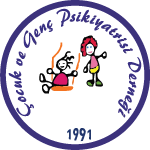ABSTRACT
Acute dystonia has been identifi ed as abnormal and long- lasting contraction of eye (oculogyric crisis), head, neck (torticollis or retrocollis), arm-leg or trunk muscles. Dopaminergic blockade within the nigrostriatal pathway increase the risk of extrapyramidal side effects, including acute dystonia. Due to differences arising from its receptor- binding properties, aripiprazole has been linked to lower rates of drug- related acute dystonia, compared to other commonly used atypical antipsychotic drugs. Scarcely reported in relevant literature, there has been a few number of case studies that describe the relationship between aripiprazole and acute dystonia. Through this case report, we have aimed to present the clinical courses of two adolescents who had developed acute dystonia upon low- dose add on aripiprazole to their original treatment with fl uoxetine, where symptoms quickly dissolved following cessation of aripiprazole.



